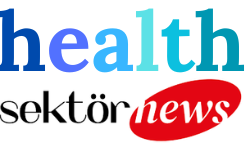
health developments
The Role of Nutrition in Cancer Prevention: A Look at the Latest Research Cancer is a leading cause of death worldwide, and its incidence is on the rise.
While genetic factors play a significant role in cancer development, lifestyle and environmental factors also play a significant role.
One of these lifestyle factors is nutrition. Research has shown that nutrition plays a crucial role in cancer prevention. In this article, we will explore the latest research on the role of nutrition in cancer prevention.
The Link Between Nutrition and Cancer
The link between nutrition and cancer prevention is complex and not fully understood. However, research has shown that consuming a diet rich in fruits, vegetables, whole grains, and lean protein sources is associated with a lower risk of cancer.
On the other hand, a diet high in processed and red meats, saturated and trans fats, and refined grains is associated with an increased risk of cancer.
Several factors may explain the link between nutrition and cancer. For example, consuming a diet rich in fruits and vegetables provides the body with antioxidants and phytochemicals that help to protect cells from damage that can lead to cancer.
Additionally, a diet high in fiber may help to reduce the risk of colon cancer by promoting regular bowel movements and reducing exposure to carcinogens.
Research on Specific Nutrients and Cancer Prevention
While overall dietary patterns are important for cancer prevention, research has also looked at the role of specific nutrients in reducing cancer risk. Here are a few examples:
Vitamin D: Research has suggested that vitamin D may reduce the risk of several types of cancer, including colon, breast, and prostate cancer.
Vitamin D may play a role in regulating cell growth and differentiation, and it may also have anti-inflammatory and anti-cancer properties.
Omega-3 fatty acids: Omega-3 fatty acids found in fish, nuts, and seeds may have anti-inflammatory and anti-cancer properties. Research has suggested that consuming omega-3 fatty acids may reduce the risk of several types of cancer, including breast, prostate, and colon cancer.
Calcium: Calcium is important for strong bones, but it may also play a role in cancer prevention. Research has suggested that consuming adequate amounts of calcium may reduce the risk of colon cancer.
Cruciferous vegetables: Cruciferous vegetables, such as broccoli, cauliflower, and kale, contain a compound called sulforaphane, which may have anti-cancer properties.
Research has suggested that consuming cruciferous vegetables may reduce the risk of several types of cancer, including lung, breast, and colon cancer.
Green tea: Green tea contains polyphenols that may have anti-cancer properties. Research has suggested that consuming green tea may reduce the risk of several types of cancer, including breast, prostate, and colorectal cancer.
In conclusion, nutrition plays a crucial role in cancer prevention. Consuming a diet rich in fruits, vegetables, whole grains, and lean protein sources may help to reduce the risk of cancer, while a diet high in processed and red meats, saturated and trans fats, and refined grains may increase the risk of cancer. Additionally, specific nutrients, such as vitamin D, omega-3 fatty acids, calcium, cruciferous vegetables, and green tea, may also play a role in reducing cancer risk. While more research is needed to fully understand the link between nutrition and cancer prevention, adopting a healthy dietary pattern is a crucial step in reducing cancer risk.








